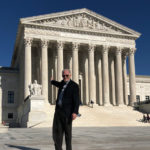
What is AB 5 and Why Was it Passed?
The California legislature recently passed Assembly Bill 5, better know as AB 5. This bill is part of a growing national movement to reconcile 20th century labor laws and norms with the 21st century economy. America’s rules for how employers must treat employees assume a standard labor relationship: employers hire employees who work regular, predictable hours at a common location in exchange for wages and benefits.
The rise of the Gig Economy has changed this relationship, or more accurately, created a new type of relationship. Uber drivers, for example, work whenever they want, for as long as they want, using their own car and gas, for which they are not reimbursed. Under 20th century rules, Uber drivers may not be employed by Uber at all. Or perhaps they may be. It is hard to say because the existing laws did not anticipate a business like Uber.
AB 5 (and similar laws in Massachusetts, Connecticut and New Jersey) is an attempt to update employment law to cover gig employees — people who work for a company on a more informal basis than that anticipated by older employment laws. AB 5 does this by redefining what an employee is. The intent is to bring casual employment relationships under existing employment laws so that gig employees enjoy some of the legal protections enjoyed by regular employees.
AB 5 will also raise the cost of hiring gig employees, which was the intent of some supporters, including taxi drivers. Established companies, like taxis and couriers, employ regular workers, which means they must pay normal wages, overtime, benefits and other expenses. These companies complained that gig companies could avoid these expenses simply by defining their workers as contractors, giving the gig companies a competitive advantage.
Lastly, gig employees have proven to be very difficult to unionize. Labor unions hope that redefining some independent contractors as employees will allow those workers to be added as union members.
Unintended Consequences for IEEE Consultants
AB 5 establishes a three-part test to determine if an individual is an employee, as opposed to a contractor. This test (called the ABC test) is:
(A) The person is free from the control and direction of the hiring entity in connection with the performance of the work, both under the contract for the performance of the work and in fact.
(B) The person performs work that is outside the usual course of the hiring entity’s business.
(C) The person is customarily engaged in an independently established trade, occupation, or business of the same nature as that involved in the work performed.
To qualify as a contractor, the individual would need to satisfy all three criteria, but IEEE consultant and contractor members may get caught by (B). This test would, for example, preclude a software engineer from working as a consultant for a software company, since producing software is within the “usual course” of the company’s business. The software consultant would probably be considered a regular employee of the company.
It is not clear what the “usual course” of business is, as the courts have not adjudicated this yet. Until we have more clarity on this, consultants should be cautious.
What IEEE-USA Has Done About AB 5
When IEEE-USA was alerted to problems in AB 5 by an IEEE member in California, our Government Relations staff immediately analyzed the bill text. Press coverage of the bill said that engineers and other professionals were exempt from the new rules, but staff quickly determined that this was not true (except for licensed engineers, who account for only a small percentage of total IEEE engineers).
IEEE-USA staff then contacted a number of IEEE members in California, including Section Chairs, the IEEE California Consultants Network of Silicon Valley, and the IEEE-USA President (me) — who happens to be a consultant in California. IEEE members were apprised of the situation and encouraged to spread the word among other IEEE members.
IEEE-USA staff contacted the bill sponsor, Assemblywoman Lorena Gonzales, and a number of other prominent legislators to discuss the bill. Based on those conversations, staff concluded that the bill did, in fact, prohibit most IT consultants from operating in California, and that most of the Legislators didn’t know this. Legislators believed that the exemption for licensed engineers was sufficient to exempt all engineers from the bill.
IEEE-USA sent a letter to Gov. Newsom (https://ieeeusa.org/wp-content/uploads/2019/09/091119.pdf) bringing his attention to the problem and asking for help.
AB 5 was amended at the last minute to address some of our concerns. Language was added exempting businesses from the new employment rules. Language to this affect had always been in the bill, but the rules originally only applied to specific professions. The final language extended the business exemption to all companies and should provide IT consultants with some space in which to operate, with the right business structure.
What the Final Bill Says About Contractors/Consultants—Requirements and Options
The law contains a long list of exemptions from the new rules — professions that do not fall under the new definitions. One of those exemptions is for engineers — but only for licensed engineers. This narrow exemption will work for professional licensed engineers, but not for most technical professionals.
There is a second, more promising exemption. AB 5 exempts business-to-business relationships from the ABC test. In other words, AB 5 prevents companies from hiring individual consultants, but does not prohibit them from hiring consulting companies — even if the company is just one person working out of his/her home.
Consequently, most consultants in California should be able to continue to be independent contractors within California if they build a legal shell around their business — that is, they incorporate, become a sole-proprietorship or some other status. This, by the way, is a good idea anyway since incorporating provides liability and other legal protections.
Complicating the business exemption is wording in AB 5 that requires contracts between consulting companies and their clients to meet a set of 12 criteria. Most of these are benign (you must have a written contract, you must have a business license), but others are more troubling.
For example, consulting companies must have “contracts with other businesses to provide the same or similar services and maintains a clientele without restrictions from the hiring entity.” The problem is that some contractors work with just one company. These consultants may want to branch out and find at least one other client. On the other hand, courts in Massachusetts and New Jersey have ruled that similar language in those states’ laws does NOT mean consultants need to have more than one client, only that they could have additional clients if they chose to. California courts don’t have to consider how the law is interpreted in other states, but they generally give other states’ legal opinions weight.
A final problem with the business exemption is that several criteria, including the one above, assume that the consulting company is already in business. That could make it hard to become a consulting company. Getting your first client will be difficult if you first have to prove you have other clients.
Much of the ambiguity in the law will be worked out in the courts. But courts take time and are unpredictable, so consultants should tread carefully while the details are clarified.
National Implications of Laws Like AB 5
The California law was based on similar laws in Connecticut, Massachusetts and New Jersey. Politicians in New York and Washington, D.C. have already expressed interest in adopting versions of AB 5.
IEEE members should monitor the news in their states and alert IEEE-USA if their state legislature starts discussing changing the independent contractor rules, and communicate their concerns with local state legislators. Laws like AB 5 do not have to be a major burden on technology consultants, but they can be if the laws are not written carefully.

Tom Coughlin
IEEE-USA President, 2019
Russell Harrison is director of IEEE-USA Government Relations.







If Congress passes an AB5 Law, how will that impact everything from 2 or 3 person home cleaning services to one or two person consultants sub-contracting to Beltway Bandits? Should IEEE-USA start identifying actions that our members should consider now, vice later?